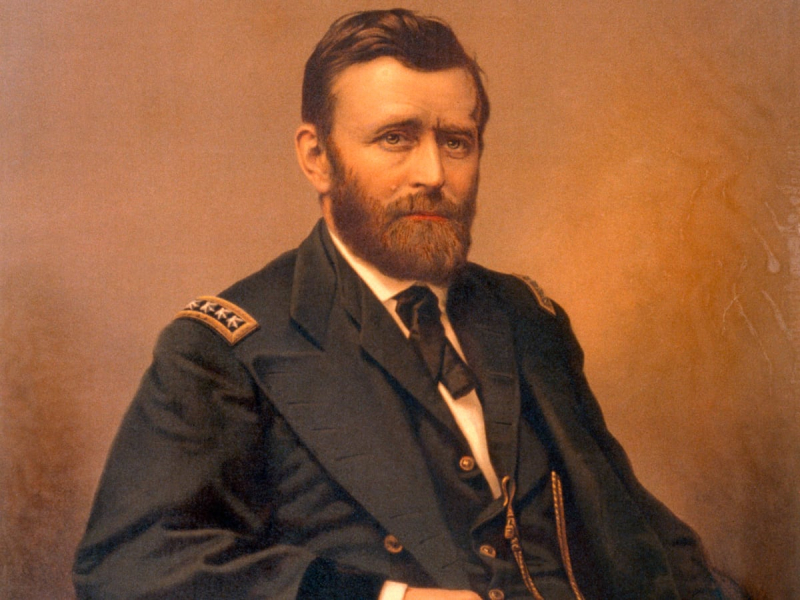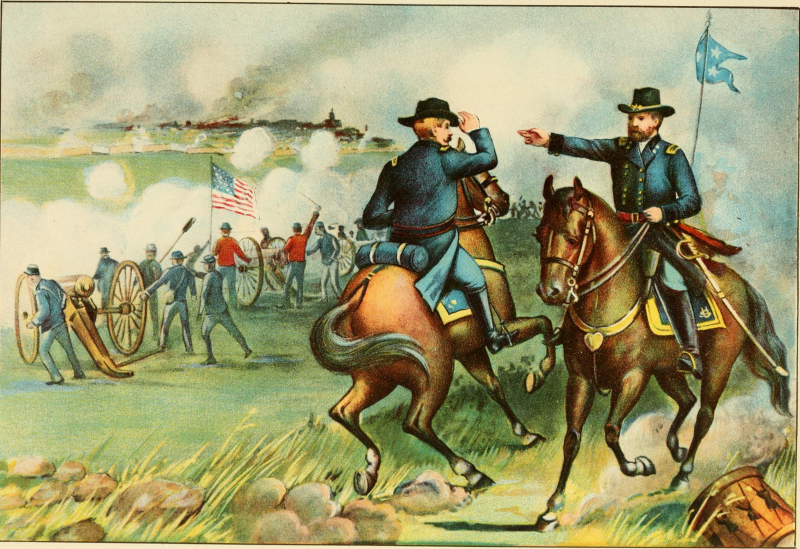Ulysses S. Grant tried to take Vicksburg by storm twice before settling in to a siege
Ulysses S. Grant (April 27, 1822 – July 23, 1885) was an American military officer and politician who served as the 18th president of the United States from 1869 to 1877. As Commanding General, he led the Union Army to victory in the American Civil War in 1865 and thereafter briefly served as Secretary of War. The Confederate army marched into Vicksburg during the Vicksburg campaign on May 17, 1863, with Grant’s Federals hot on their heels. Grant ordered a small-scale assault on three axes, the Graveyard Road, the Jackson Road, and the Southern Railroad on May 19. Despite planting their colors on the Rebel works, the Yankee attackers were turned back with a substantial loss.
On May 22, Grant tried again. After a massive bombardment, each of his three corps commanders: James McPherson, John McClernand, and Sherman was ordered to attack their respective sectors. Sherman's Fifteenth Corps' assault on the right, McPherson’s men in the center, and McClernand’s men on the left. McClernand sent back to Grant for additional help. Grant, however, was slow to respond to his subordinate's call for aid. McPherson sends a division to McClernand, but it is too little too late. A combination of determined defense and command confusion led to another morale-sapping defeat for the Union forces. All told, Grant lost more than 4,000 men in the May offensive. The Confederates lost less than 600. Although the Union army had won a string of victories in the open field, the Vicksburg defenses proved impervious to hasty attacks. The May offensive convinced Grant to lay siege to the city and starve the Confederates out.













